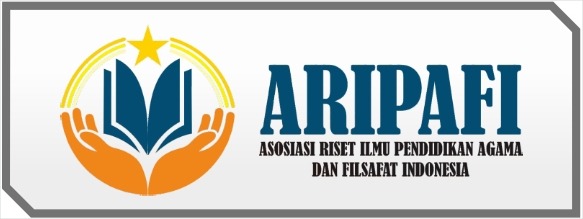Transforming Islamic Education for Environmental and Social Sustainability
DOI:
https://doi.org/10.61194/ijis.v2i2.601Keywords:
Islamic Education, Sustainable Development, Environmental Ethics, Curriculum Reform, Sdgs, Green Campus, Islamic PedagogyAbstract
This study explores the contributions of Islamic education to sustainable development by reviewing recent literature on curriculum innovation, environmental awareness, institutional engagement, and technological adaptation. The aim is to assess how Islamic educational institutions integrate sustainability principles through religious values and pedagogical strategies. Using a narrative review approach, literature from Scopus and Google Scholar was analyzed based on keywords such as "Islamic education," "sustainable development," "green campus," and "Islamic environmental ethics." The study adopts an Islamic ethical framework rooted in the principles of khalifah (stewardship), maslahah (public benefit), and adl (justice), which inform the integration of sustainability into educational models. It focuses primarily on Southeast Asia and the Middle East, analyzing case studies from Indonesia, Saudi Arabia, and other Muslim-majority countries. Findings reveal that Islamic boarding schools (pesantren) in Indonesia have pioneered ecological education through initiatives like Eco-Pesantren, while universities have begun implementing SDG-based curricula and eco-friendly infrastructure. These practices demonstrate the transformative potential of aligning faith-based education with global sustainability goals. However, challenges remain, including limited policy clarity, resource constraints, and the need for standardized evaluation methods. These findings underscore the urgent need for policy reforms, community empowerment, and inter-sectoral collaboration. The study concludes that Islamic education, if strategically supported, can be a powerful force in advancing global sustainability, offering both ethical guidance and practical solutions.
References
Abubakar, I. (2018). Islamic education in pesantren: Learning character and social responsibility. Yogyakarta: Deepublish.
Abbasi‐Shavazi, M. J., & Jones, G. (2019). Education and human development in Muslim societies: A cross-national perspective. Population and Development Review, 45(1), 157–185. https://doi.org/10.1111/padr.12223 DOI: https://doi.org/10.1553/populationyearbook2018s057
Al-Subaie, A. (2024). Integrating the SDGs in higher Islamic education: Saudi Arabian perspectives. International Journal of Islamic and Middle Eastern Finance and Management, 17(1), 1–19.
Andespa, D., Maulana, R., & Fitriani, Y. (2024). Islamic education engagement in sustainability through international academic forums. Jurnal Pendidikan Islam, 10(2), 145–162.
Ashraf, M., Kamarudin, F., & Ahmad, S. (2021). Eco-Islamic boarding schools and environmental ethics: An educational model. Journal of Islamic Environmental Studies, 6(1), 21–36.
Bsoul, L., Farajallah, M., & Ahmad, R. (2022). Islamic ecological ethics and sustainability: Exploring Qur'anic perspectives. Journal of Islamic Environmental Studies, 7(2), 89–104.
Candra, S. Y., Maulana, M. Y., & Rifa’i, M. (2024). The role of pesantren in sustainable development: A narrative review. Indonesian Journal of Islamic Studies, 12(1), 30–45.
Costa, C., & Pita, M. (2021). Faith-based educational systems and the environment: A European-Islamic comparison. Comparative Education Review, 65(4), 587–609. https://doi.org/10.1086/716837 DOI: https://doi.org/10.1086/716664
Fauziah, A., Sari, D. N., & Kurniawan, H. (2024). Measuring the impact of green curriculum in pesantren education: Case study from Lampung. Jurnal Pendidikan Berkelanjutan, 13(1), 22–34.
Gabil, M., Idris, M., & Fadli, H. (2020). HDI and Islamic education in Southeast Asia: A cross-national correlation. Journal of Educational Policy and Development, 14(2), 105–120.
Hasanah, U., Aulia, D., & Fadhilah, S. (2024). University alignment with SDGs: The case of Universitas Islam Raden Intan Lampung. Journal of Sustainability in Higher Education, 25(1), 11–27.
Kalkavan, H., Yilmaz, H., & Kaya, R. (2021). Islamic worldview and sustainability education: A critical review. Journal of Islamic Educational Thought, 18(2), 45–61.
Kasam, S., Rahim, A., & Jafar, M. (2018). Measuring Islamic school sustainability using Zero Waste Index. Jurnal Ilmu Lingkungan, 12(3), 78–90.
Khan, S., & Badjie, S. (2020). SDG-based reforms in Islamic universities in the Middle East. International Journal of Islamic Educational Development, 5(2), 100–114.
Khermimoun, A. (2022). Islamic sustainability practices across regions: A narrative review. Journal of Faith and Development, 7(1), 91–107.
Lutfauziah, L., Haris, M., & Nisa, A. (2024). Assessing student attitudes toward environmental sustainability in pesantren. Environmental Education Journal, 16(2), 55–70.
Majid, S. A., Wahid, A., & Noor, H. M. (2024). Integrating Islamic values in education for sustainable development: A Malaysian experience. Islamic Pedagogy Journal, 10(1), 112–129.
Maulida, A., Hidayat, R., & Salim, M. (2024). Eco-Pesantren as a sustainable model in Islamic education: Evidence from Indonesia. Journal of Islamic Education Research, 11(2), 87–101.
Moustapha, D., Nur, F., & Idris, S. (2022). Digital tools in Islamic green education: A multi-case study. International Journal of Islamic Education and Technology, 9(3), 221–238.
Muchlis, R., Darmawan, A., & Fitriyah, I. (2024). Islamic education for sustainability: Challenges and prospects in Indonesia. Journal of Islamic Development, 15(2), 47–63.
Nasrudin, R., Utami, Y., & Rauf, A. (2020). The effectiveness of Islamic environmental education in pesantren. Journal of Sustainability and Islamic Studies, 5(1), 33–49.
Nugraha, D., Putri, F., & Maesaroh, L. (2024). PBL and flipped classroom in Islamic environmental education. Jurnal Pendidikan Islam, 14(1), 90–108.
Nurniqta, S. (2025). Student leadership in green pesantren: A longitudinal study. Journal of Islamic Youth Studies, 6(1), 55–73.
Purnomo, B., Ramadhan, T., & Zahra, L. (2024). Evaluating the outcomes of sustainability curriculum in pesantren education. International Journal of Islamic Educational Research, 10(1), 66–80.
Qatawneh, M., & Al-Naimat, S. (2022). The role of Islamic values in shaping environmental ethics among students. International Journal of Ethics and Education, 6(1), 15–29.
Rahman, A., & Dean, M. (2013). Community empowerment through Islamic environmental education. Global Journal of Community Development, 8(2), 134–151.
Shiri, M., Ismail, H., & Ahmad, H. (2022). Cultural resistance in Islamic environmental education. Journal of Religion and Society, 21(4), 93–109.
Sulistyowati, R., Wibowo, T., & Maulana, A. (2024). Smart classrooms and ecological awareness: A pesantren case study. Jurnal Teknologi Pendidikan, 26(1), 121–138.
Zaki, F., Mulyadi, D., & Habibah, N. (2022). Ecological behavior of pesantren students: A narrative study. Jurnal Pendidikan Karakter, 12(2), 89–104.
Zawawi, M., Hanafiah, M., & Suhendra, A. (2023). Utilizing waqf for sustainable education in Islamic institutions. Islamic Economics Journal, 14(2), 75–91.






